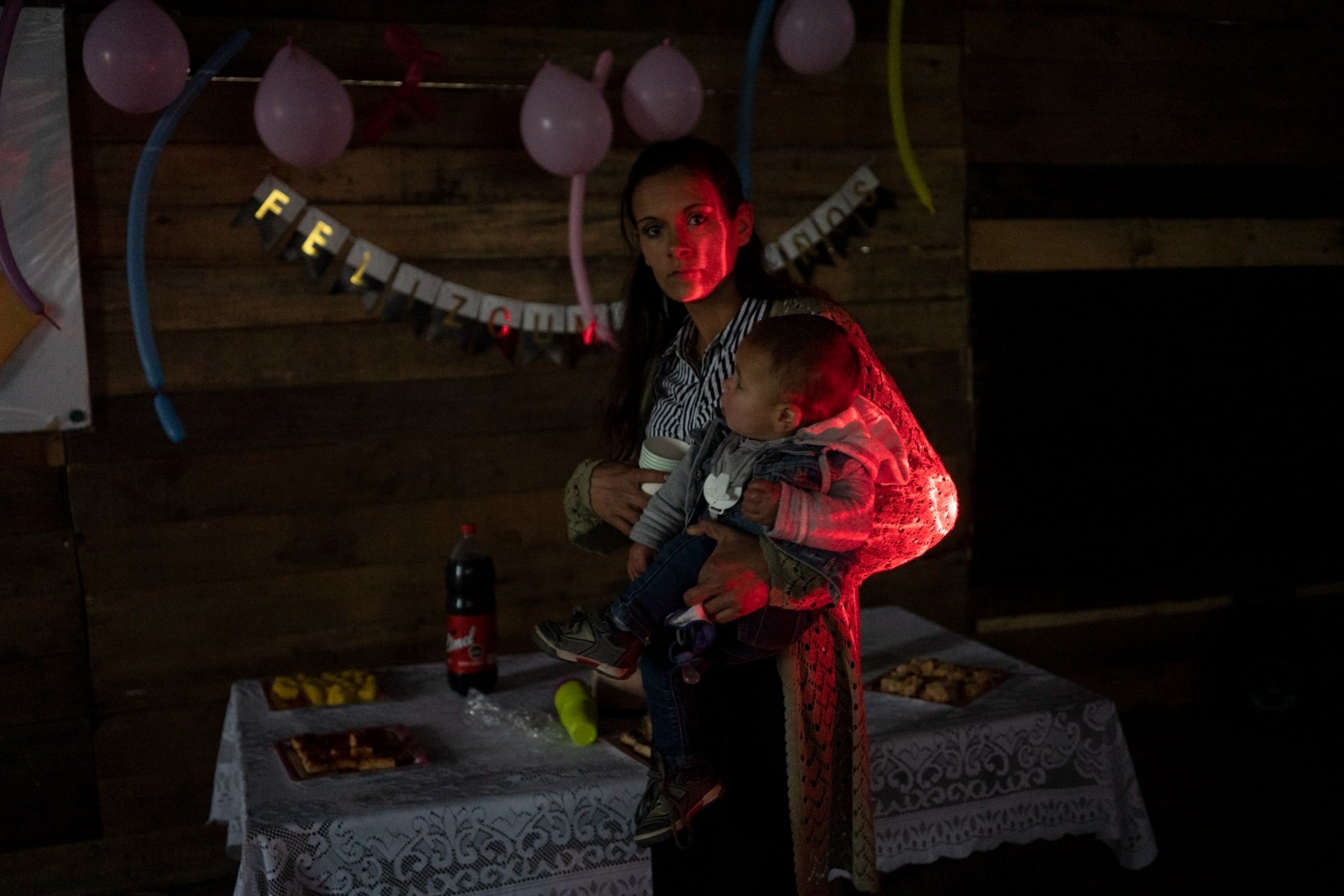
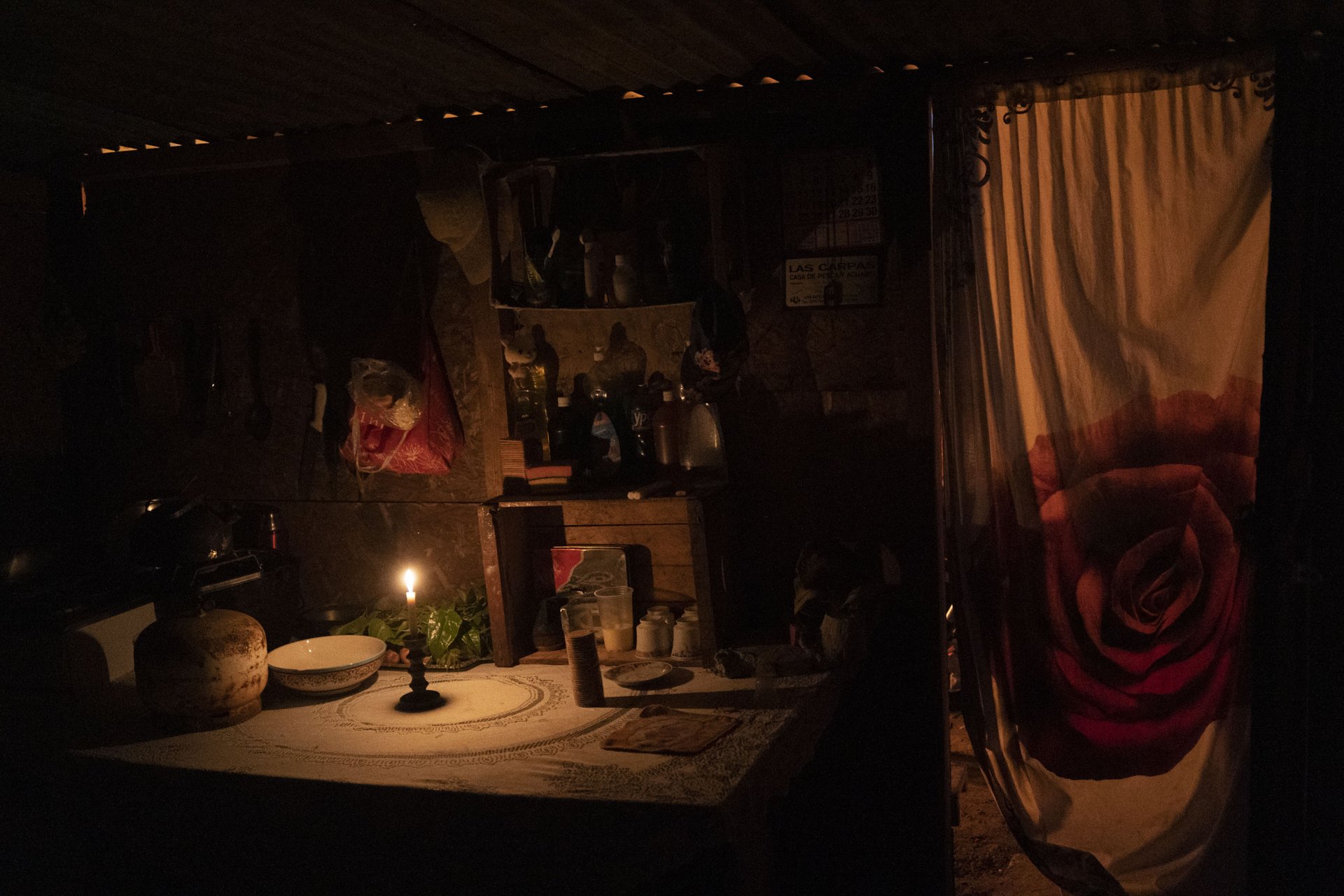
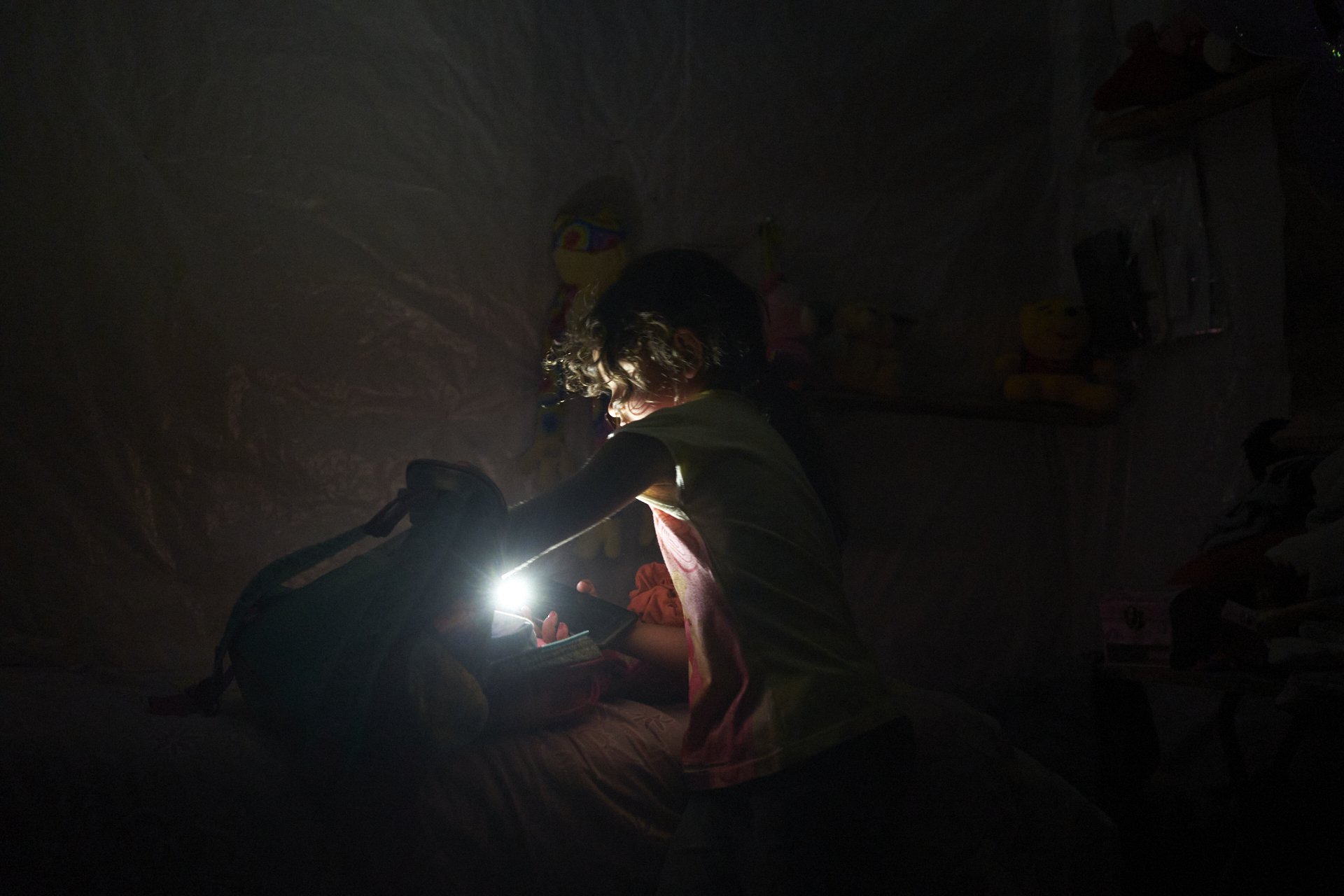
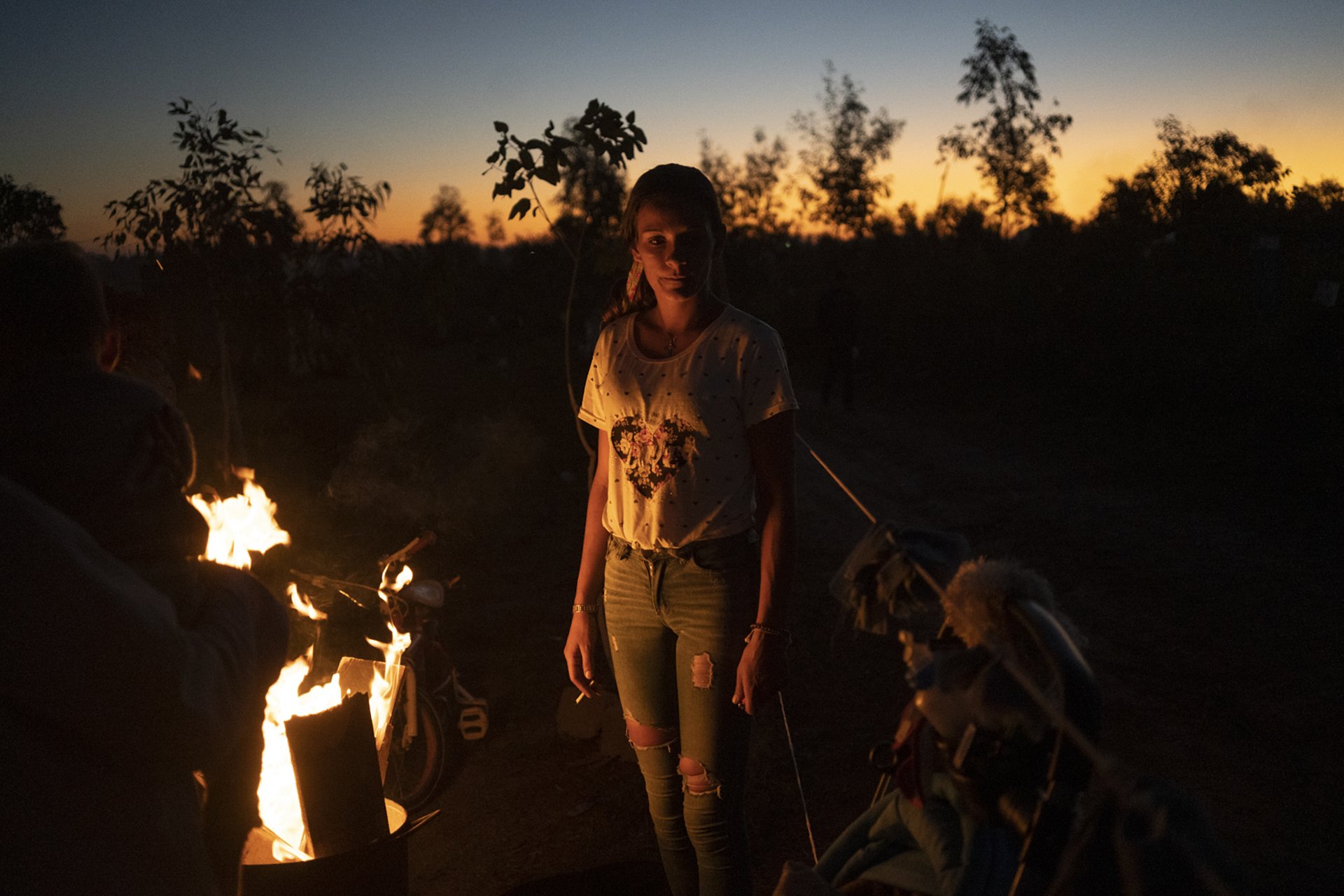
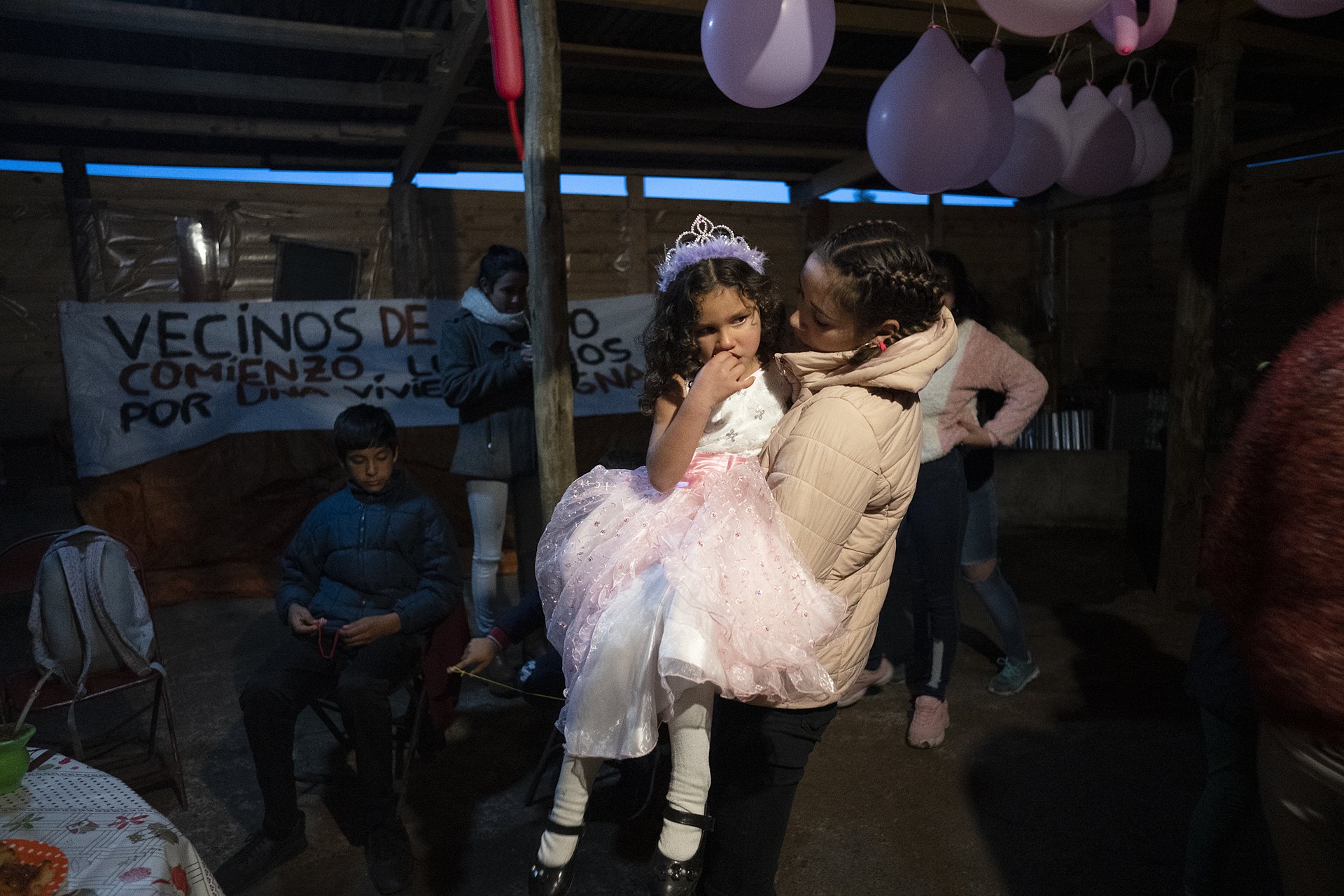
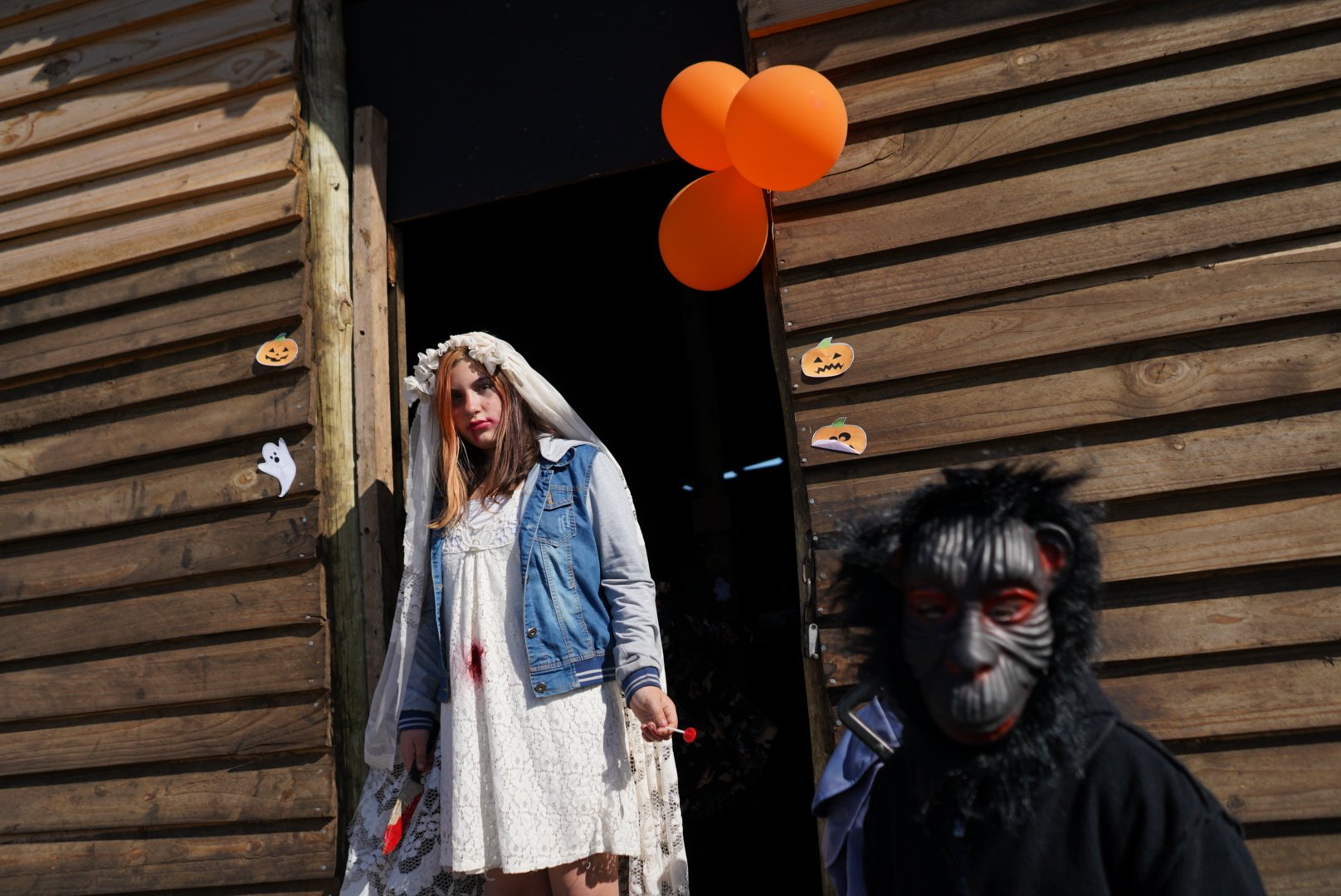
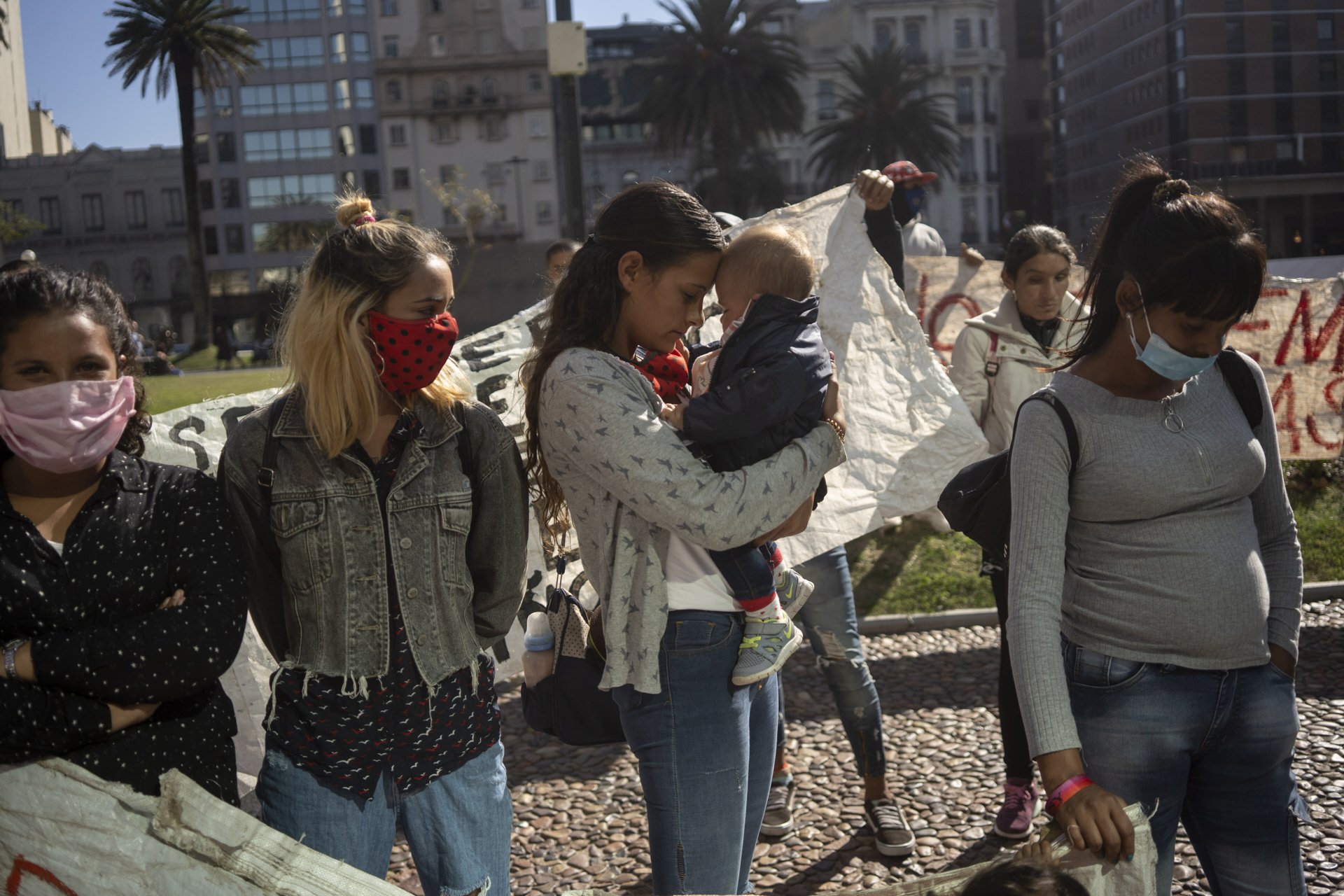
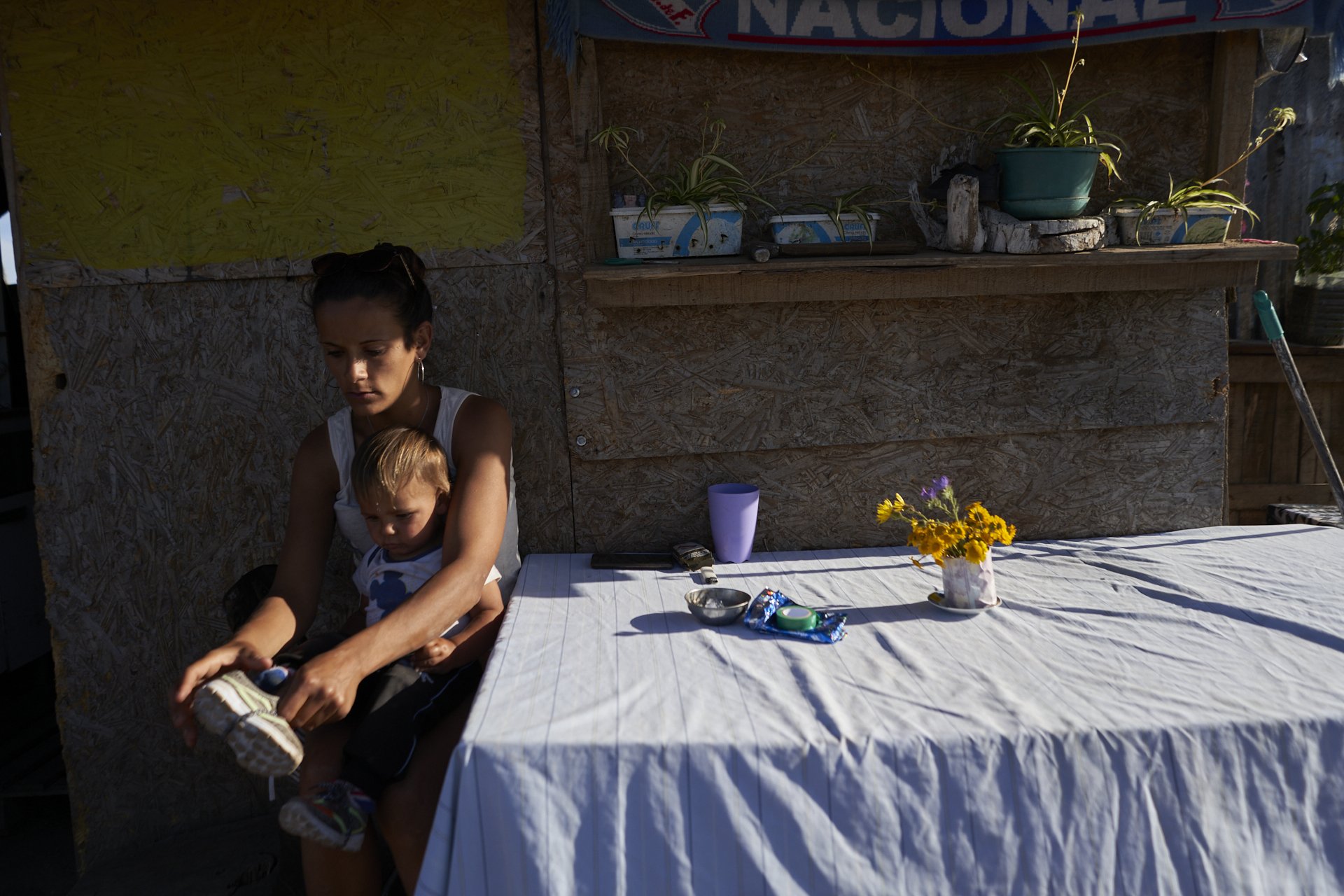
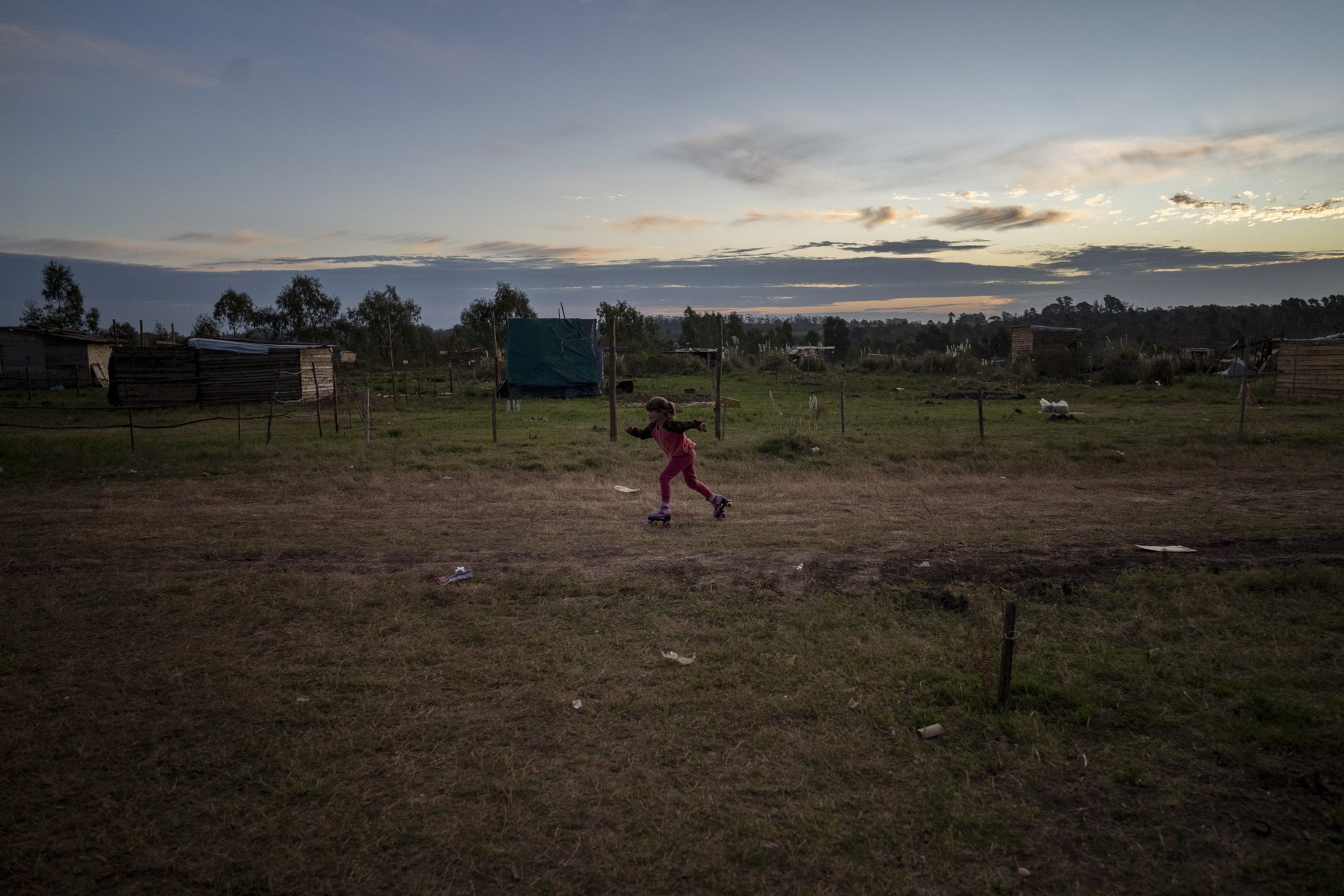
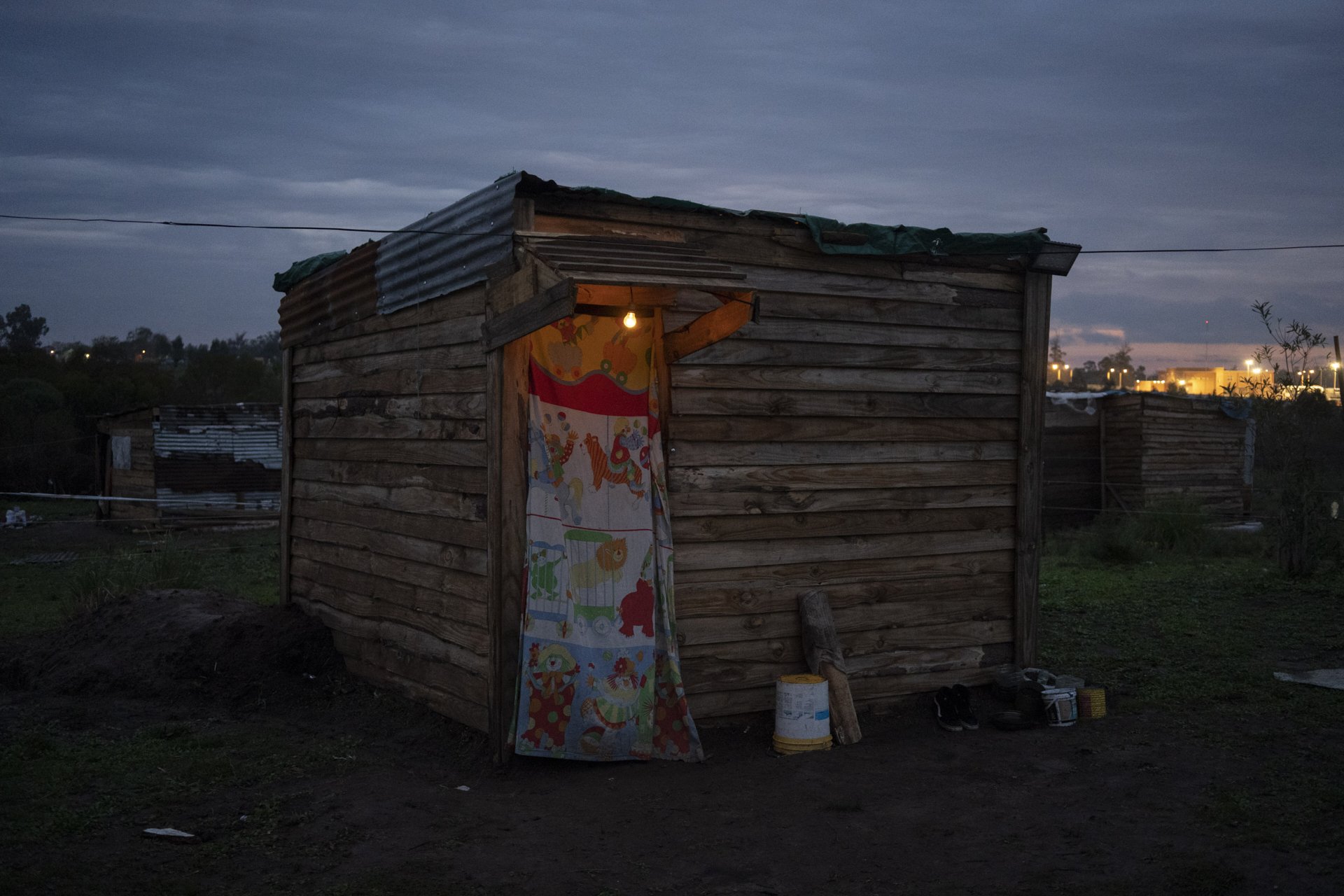
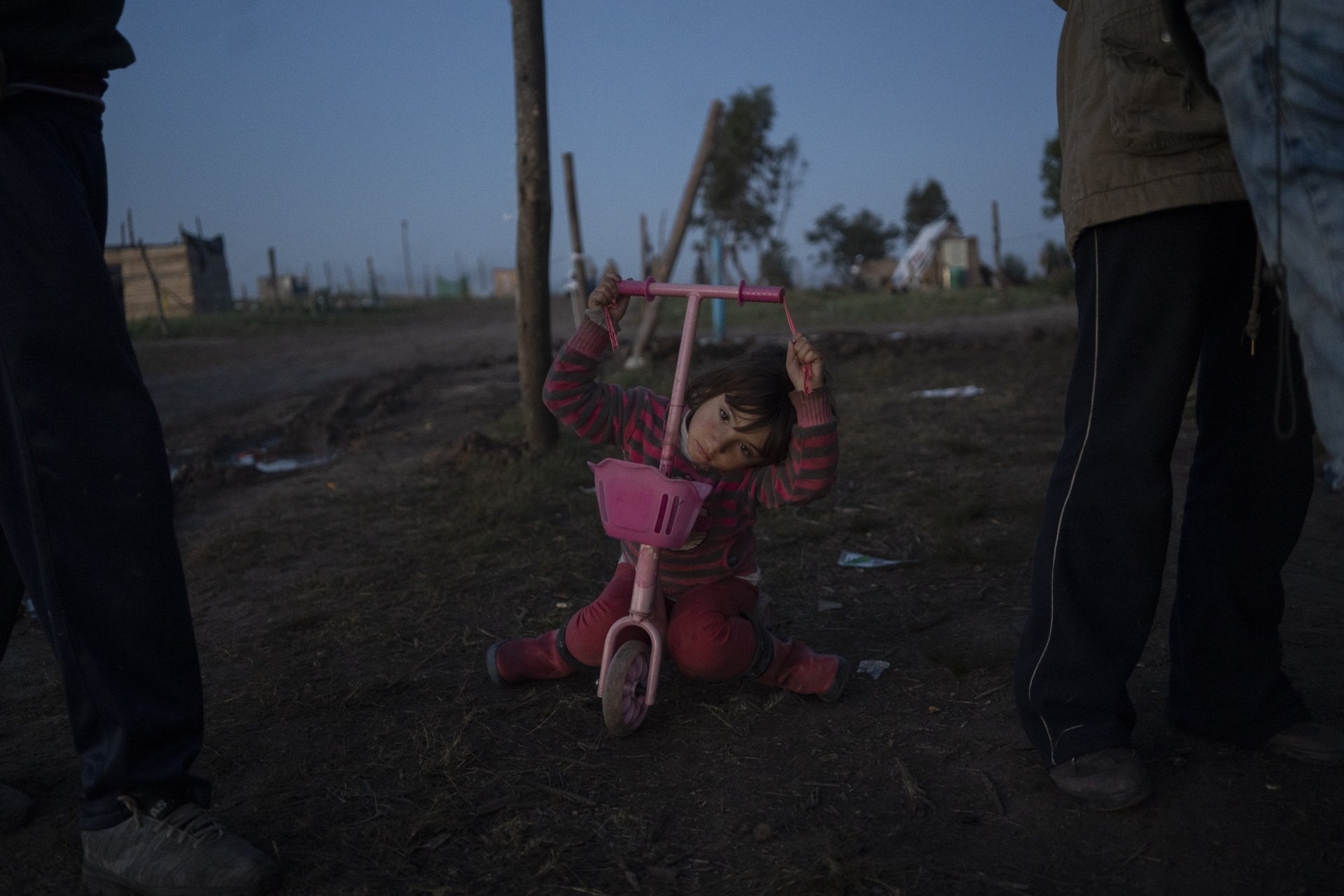
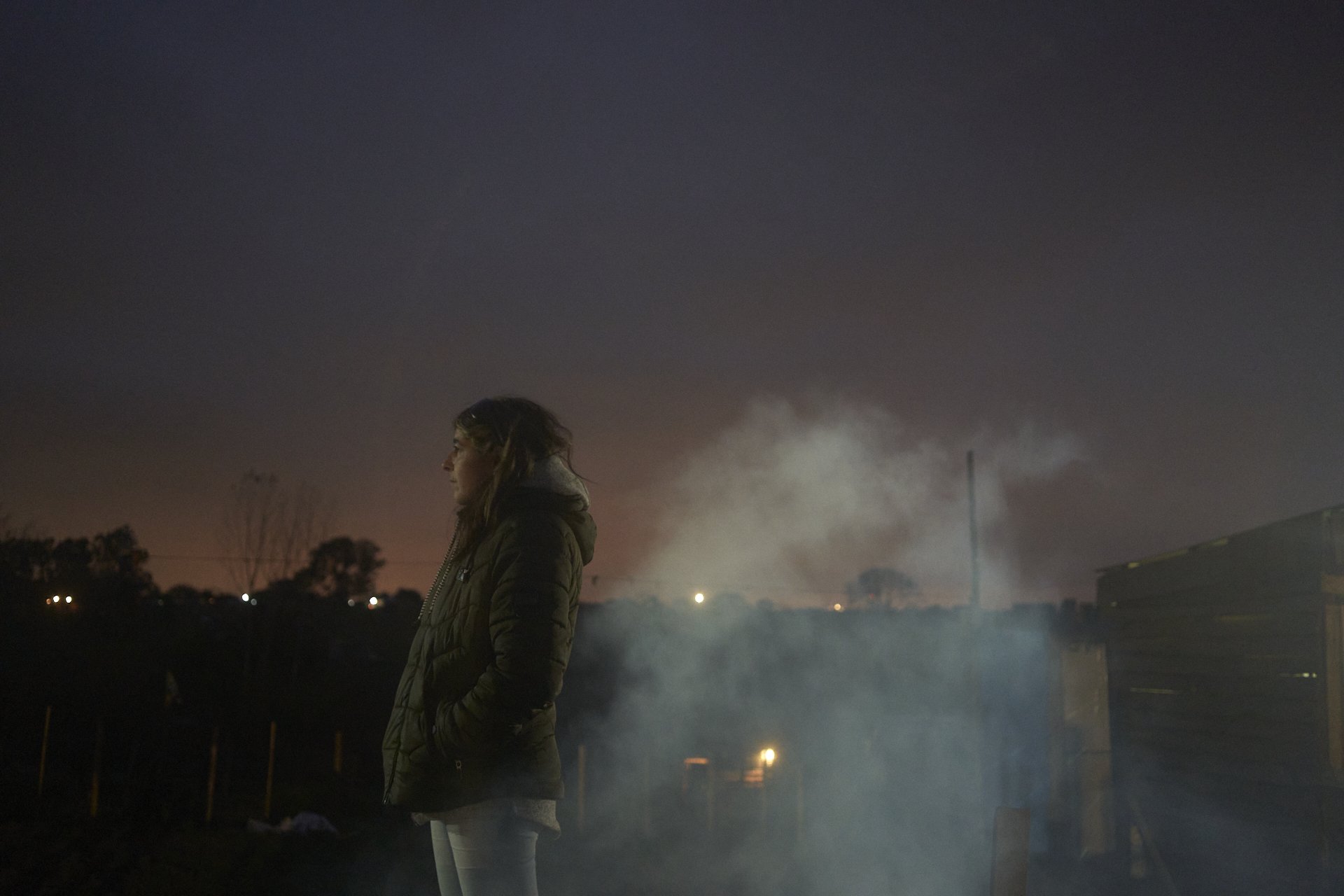
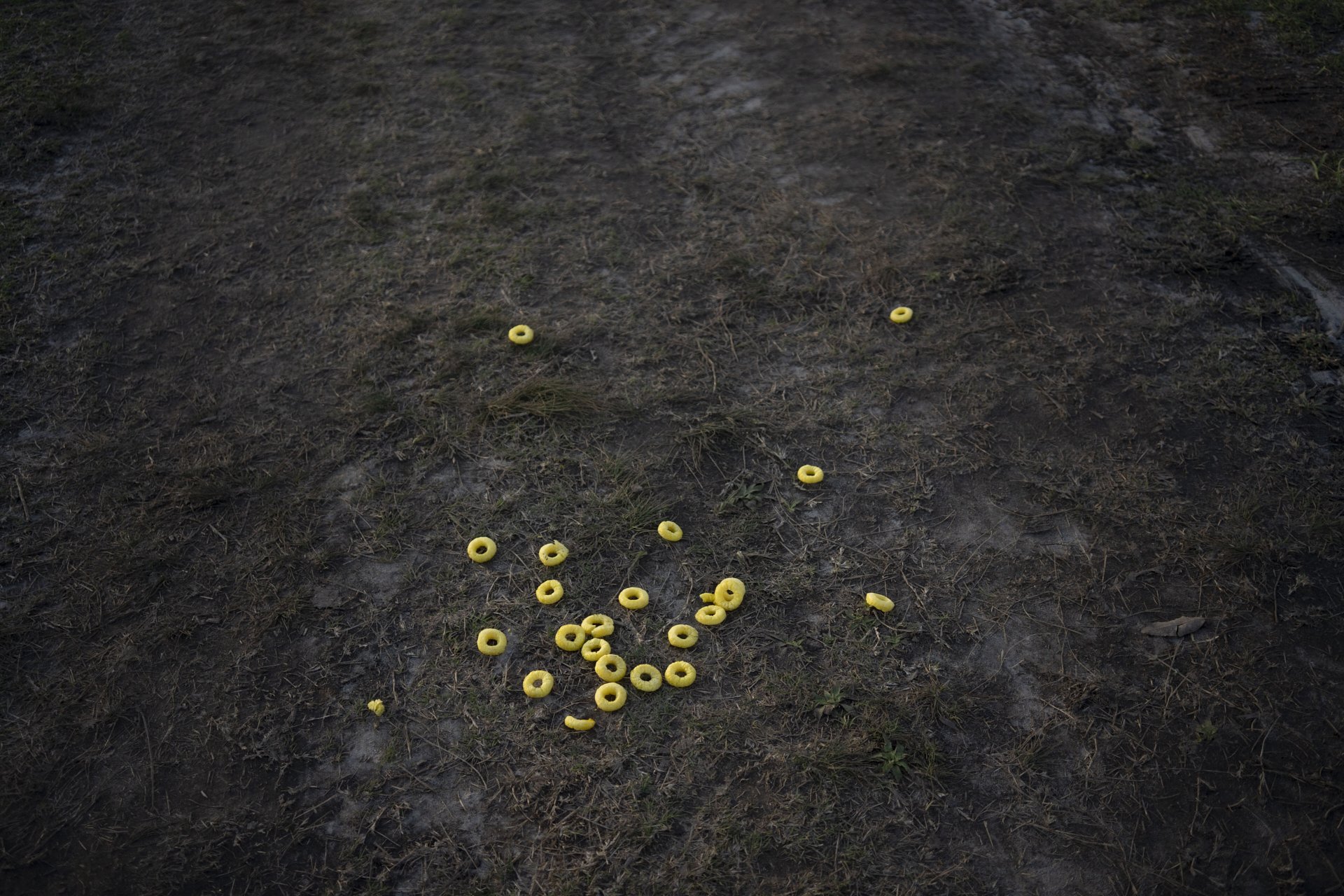
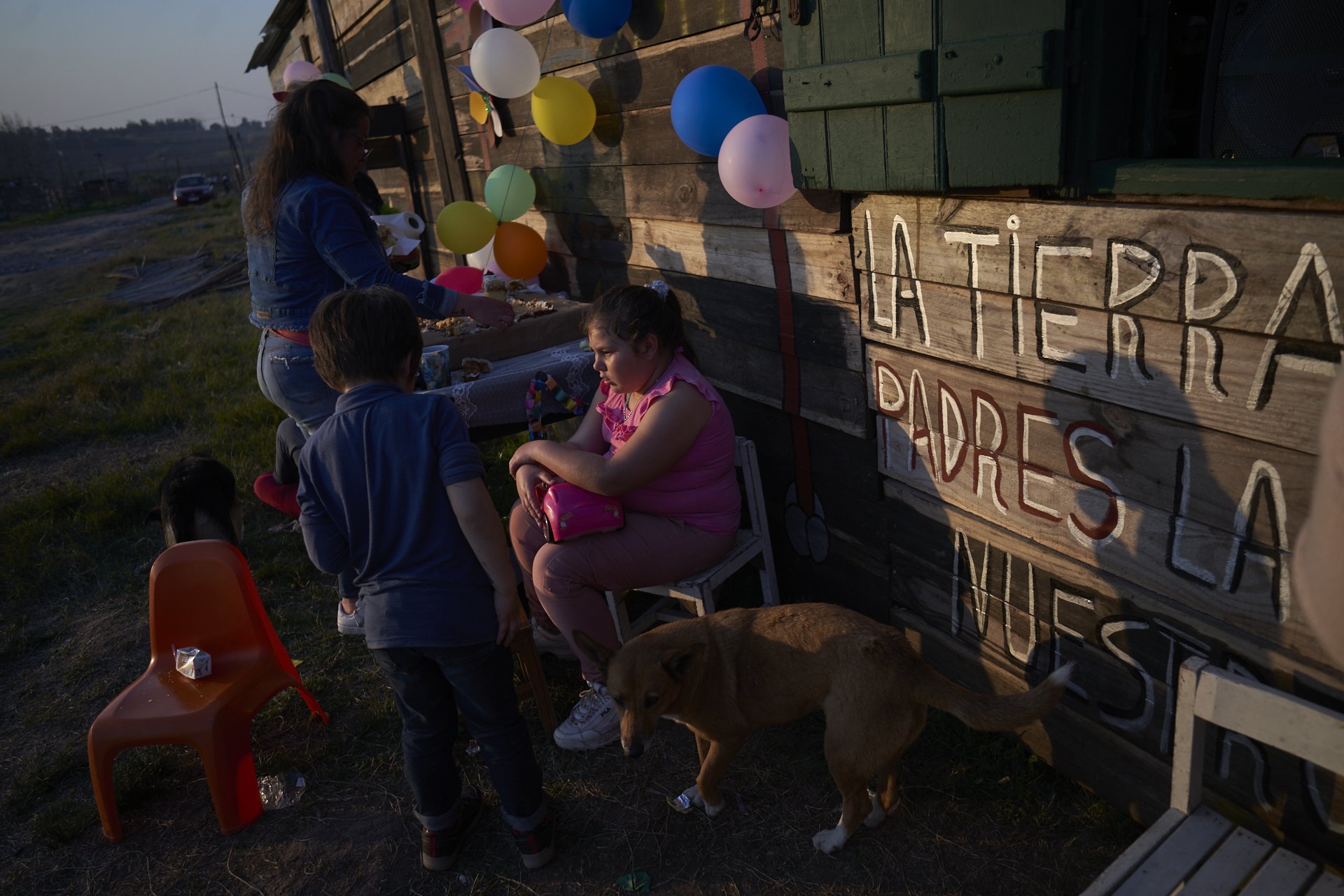
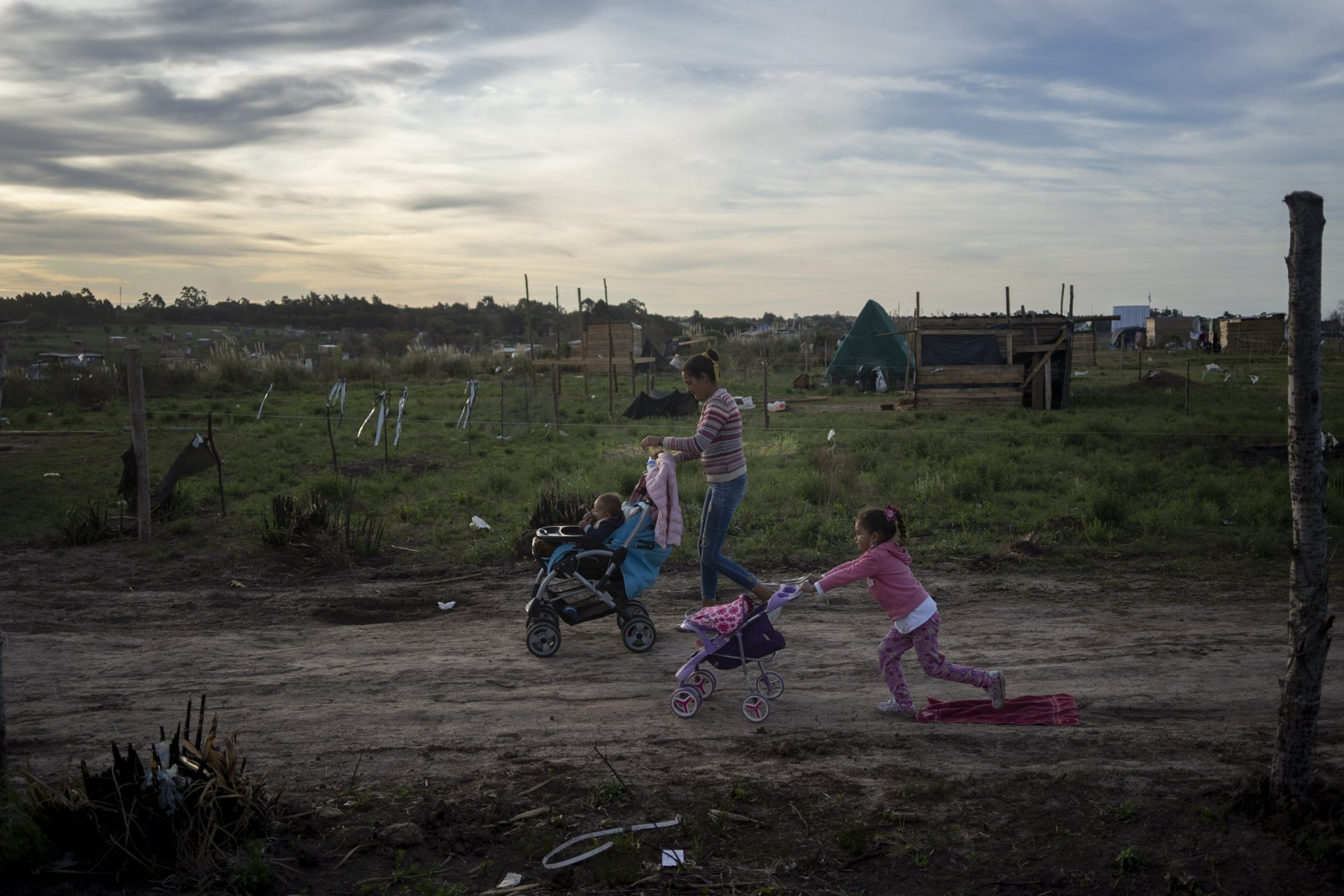
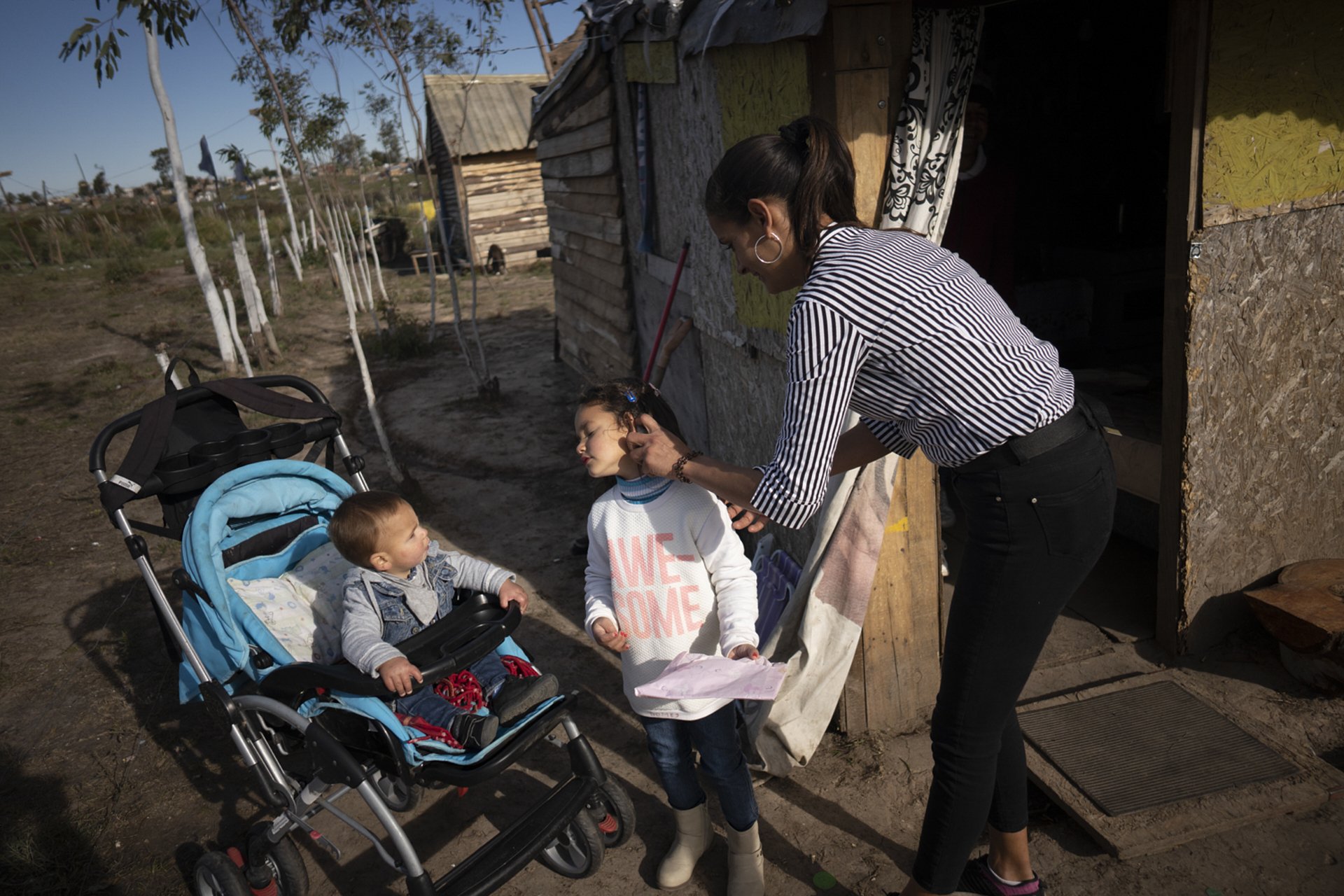
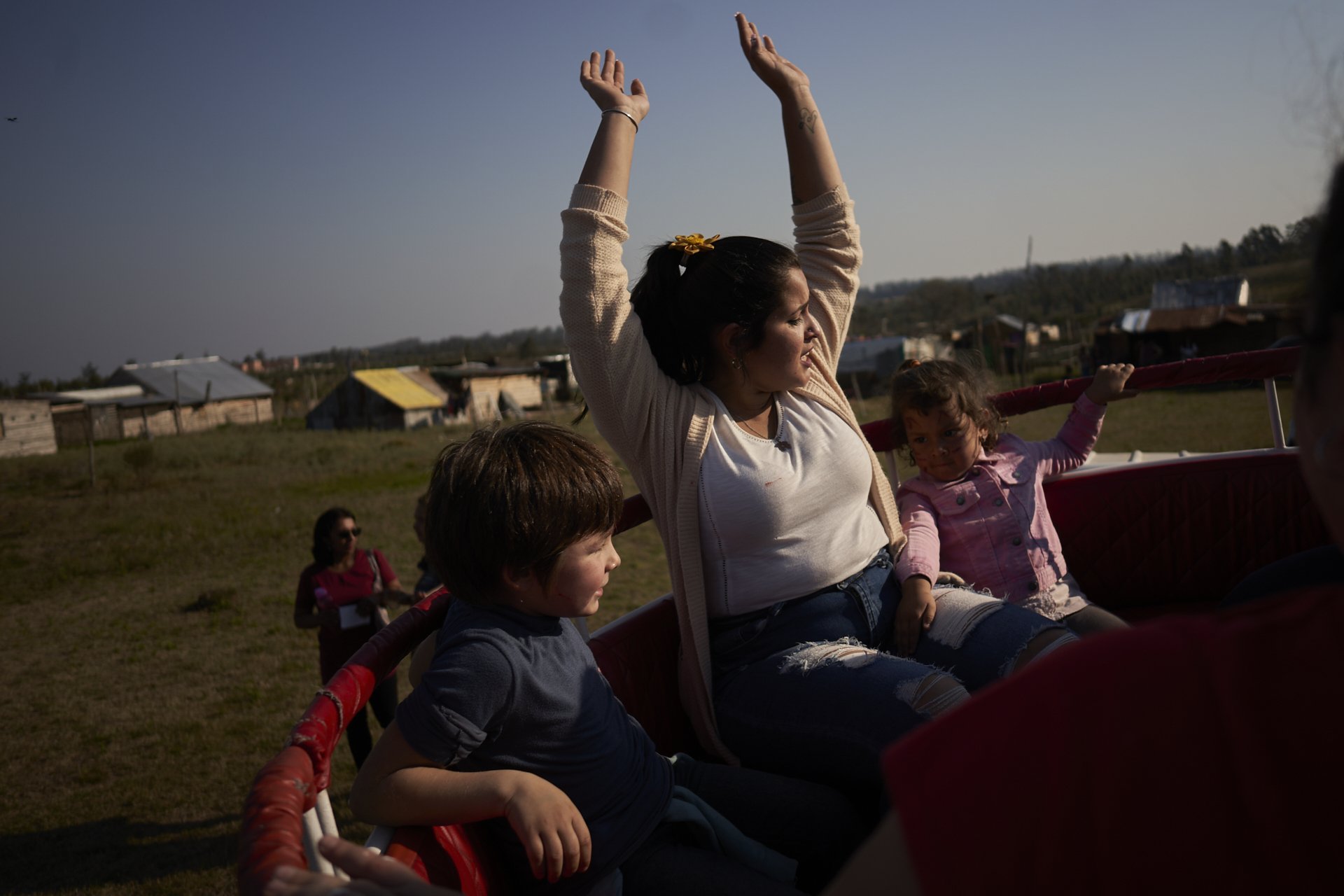
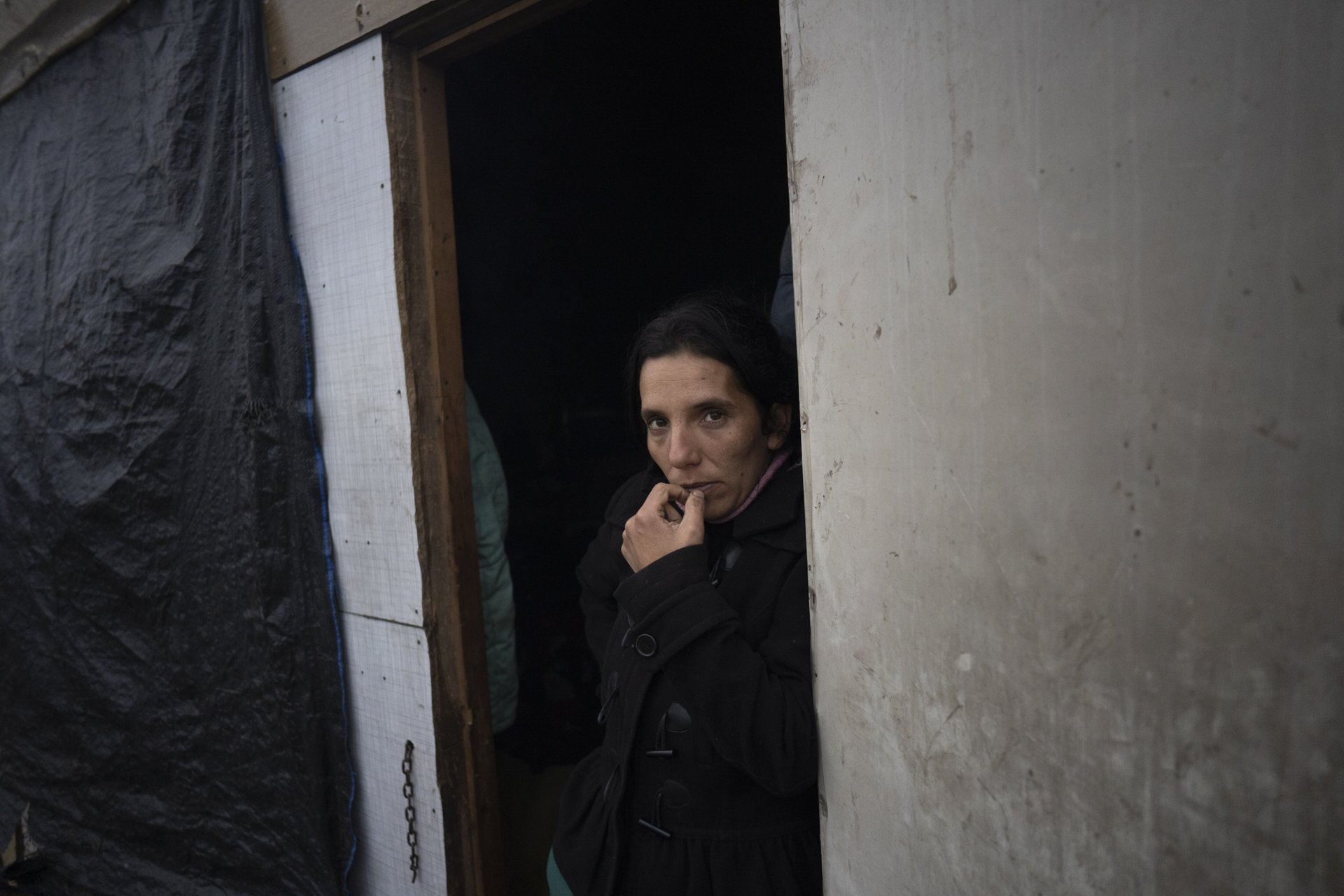
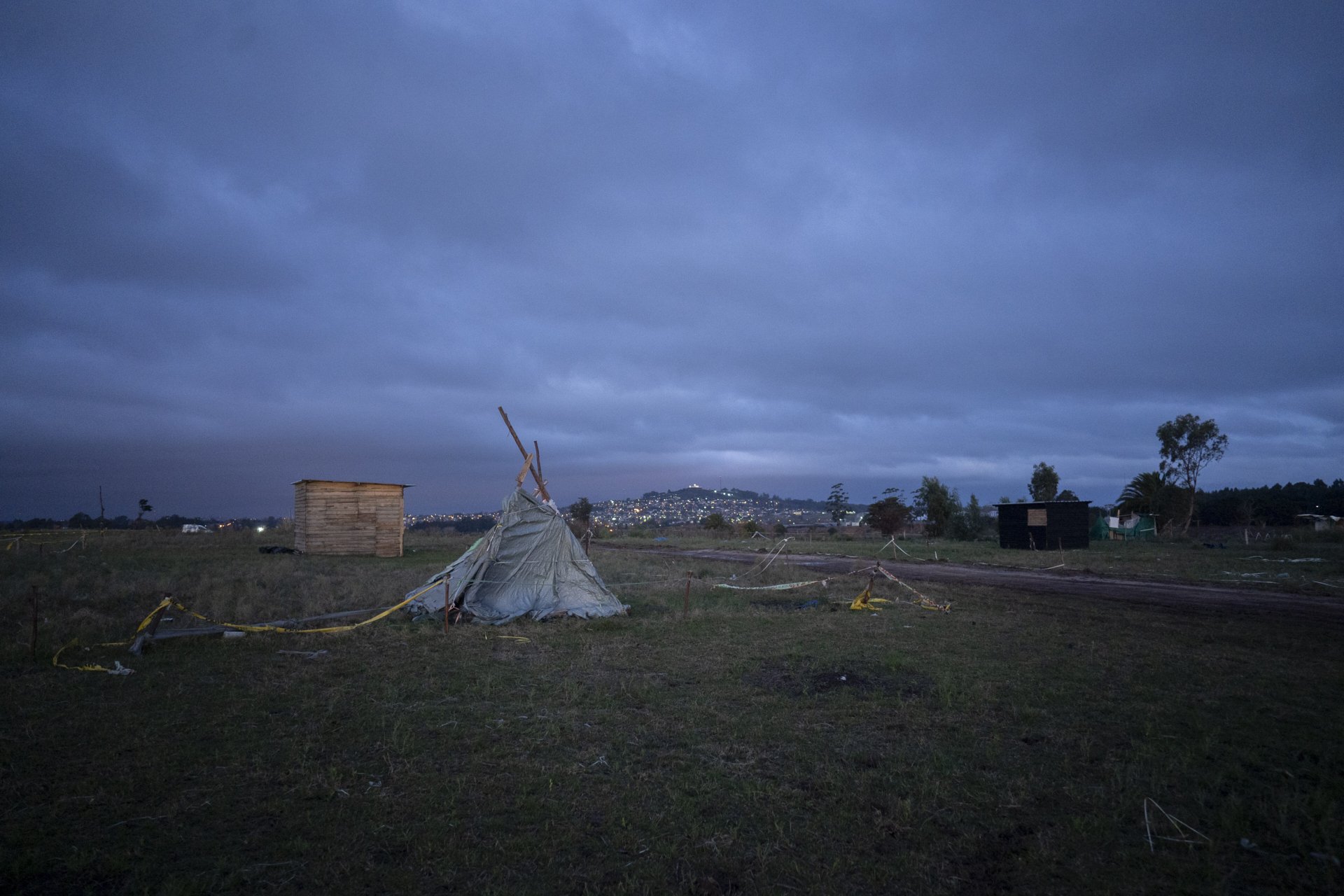

Tania with her son Bauti, sets up her daughter birthday celebration. June 2020
In January 2020, while the COVID-19 pandemic was reaching Montevideo, Uruguay, some families decided to occupy a piece of land that had been vacant for decades, and they called it Nuevo Comienzo, which means "New Beginning." By March of that year, 700 families had occupied the 70 hectares, including Leticia, Romina, and Tania.

Tania’s home. May 2020
Rising unemployment and increasing rent costs, among other factors, have led to occupation as the housing solution for 110 million people in Latin America, according to UN-Habitat. Tania, a single mother of two children, was living in cramped conditions in her family's home until there was no more space. Leticia worked as a seamstress, but at one point, her income couldn't cover the rent. Romina, with her two children, was living with a partner who was abusive until they heard about Nuevo Comienzo.
In April, an eviction notice arrived for Nuevo Comienzo, and the community came together to cook, create, and fight for a dignified place to live, despite their fear. The number of women in the occupation and the struggle is significantly higher than that of men, with many of them being single mothers.
70% of people living in poverty worldwide are women.

Tania’s daughter Pia prepares her school backpack on a Sunday night, with the help of her mom’s lantern, by then they didn’t have electricity in their house. April 2020

Tania holds her son Bautista in a protest in the center of Montevideo, asking to not get evicted. May 2020, Montevideo